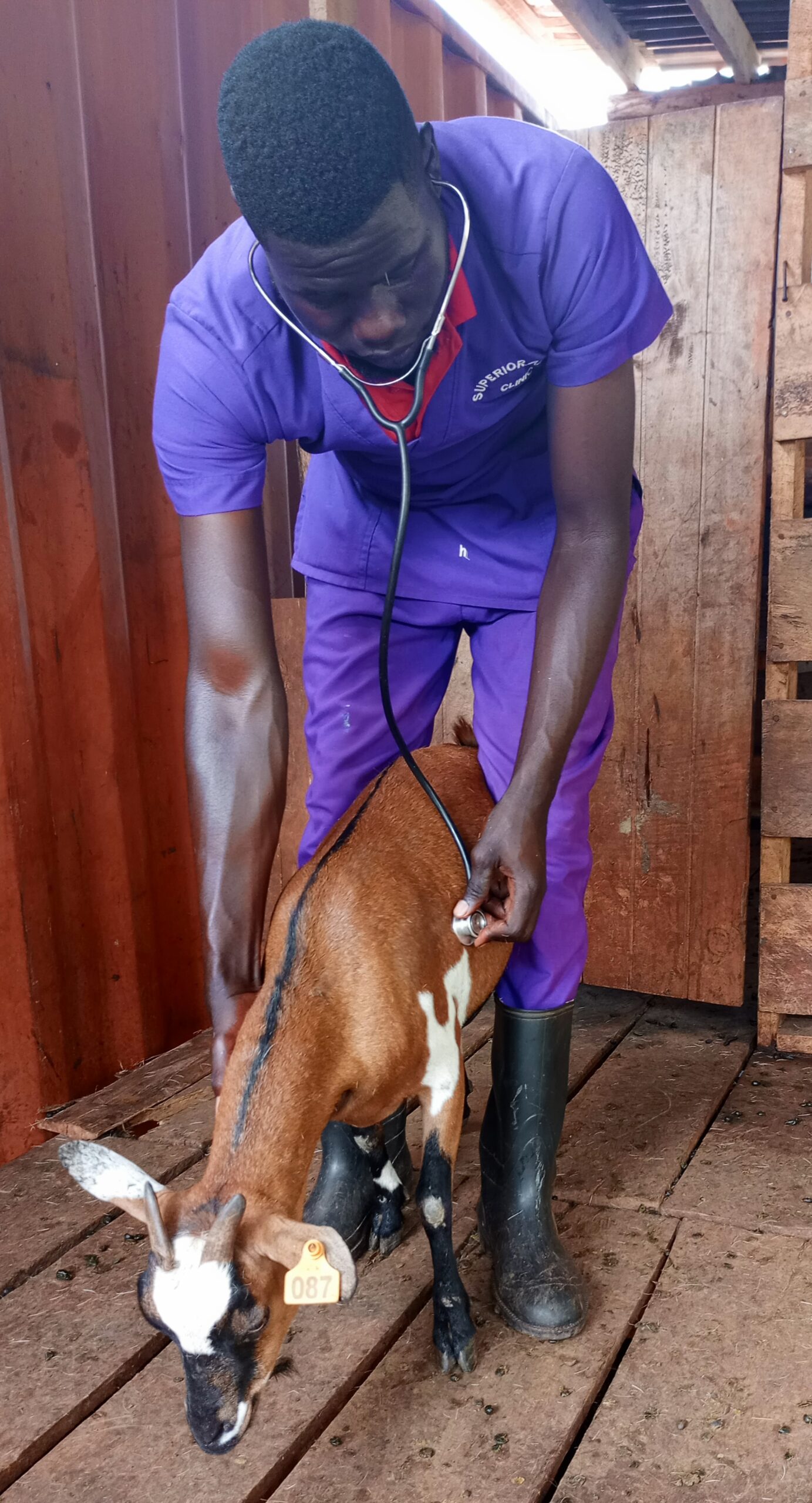
Are you a goat owner in Kampala or anywhere around it—maybe in Ntinda, Old Kampala, Kasubi, Nsambya, Katwe, or even as far as Mityana—searching online for a good goat doctor near me, where to treat my sick goat, veterinary clinic for goats in Uganda, or goat vet in Kampala?
You’re in the right place.
Welcome to Superior Animal Clinic, your trusted veterinary partner located right in Makindye along Salaama Road, Kampala. We specialize in providing professional goat veterinary services tailored for local Ugandan farmers—whether you keep a few goats in your backyard or manage a larger herd.
Why Goat Owners in Kampala Choose Superior Animal Clinic
At Superior Animal Clinic, we understand that goats are more than just livestock—they’re part of your livelihood. That’s why goat farmers from places like Muyenga, Bulindo, Buziga, Ndejje, Kololo, Rubaga, Zzana, Kabojja, Seguku, Bugolobi, Mutundwe, and Lugogo trust us to care for their goats.
Here’s what makes us the #1 goat veterinary clinic in Kampala:
- Experienced Vets Who Understand Goats
Our veterinarians have years of experience treating goats specifically and understand the unique challenges of goat farming in Uganda.
- Accurate Diagnosis
- We use modern tools and a careful examination process to diagnose what’s wrong with your goat—whether it’s a disease, parasite, or injury.
- Effective Treatment Plans
- We combine the right medication, supportive care, and advice on feeding and housing to help your goat recover fast.
- Mobile Goat Vet Services in Kampala
Can’t bring your goat to us? We can come to you! We serve all neighborhoods, including Nakawa, Naguru, Kabowa, Nakasero, and Kulambiro.
🐐 Goat Vaccination Schedule in Uganda
Keeping a proper vaccination schedule is essential for maintaining healthy and productive goats. Below is an easy-to-follow guide showing when to vaccinate goats in Uganda.
| Goat Age / Stage | Vaccines to Give | Booster / Repeat |
|---|---|---|
| Kids – 3 months | PPR, Goat Pox, Foot & Mouth Disease (FMD) | Booster after 3–4 weeks, then follow adult schedule |
| Kids – 4 months | Enterotoxaemia (if dam was vaccinated) | Booster after 3–4 weeks |
| Kids – 6 months | Black Quarter (BQ), Haemorrhagic Septicaemia (HS), CCPP | Booster per adult schedule |
| Adults – Annual | PPR, Goat Pox (Dec), CCPP (Jan), BQ (before rainy season), HS (before rainy season) | Once every year |
| Adults – Semi-Annual | Foot & Mouth Disease (FMD) | Every March and September |
| All Goats (Routine) | Deworming | At least 15 days before vaccination |
✅ Tip for Farmers in Uganda:
To get the best results, always vaccinate and deworm your goats under the guidance of a qualified veterinarian. Proper timing ensures your herd stays protected from Uganda’s most common goat diseases.
💉 How Much Are Goat Vaccines in Kampala, Uganda?
Vaccinating your goats is one of the most effective ways to protect them from deadly diseases and improve productivity. In Kampala and across Uganda, goat vaccine prices are affordable and easily accessible at Superior Animal Clinic, your trusted veterinary partner for all goat health services.
Current goat vaccine prices in Kampala, Uganda
| Vaccine Type | Price (UGX) | Purpose / Protection |
|---|---|---|
| Clostridium 100mls | 80,000 | Protects against enterotoxemia and tetanus |
| PPR 100mls | 100,000 | Prevents PPR disease (“goat plague”) |
| Orf 100mls | 100,000 | Prevents contagious ecthyma (sore mouth) |
| CCPP 100mls | 90,000 | Prevents severe pneumonia in goats |
| Black Quarter 100mls | 80,000 | Protects against blackleg and sudden death |
💡 Tip: Always consult a qualified veterinarian before vaccinating your goats to ensure correct dosage and proper handling.
At Superior Animal Clinic, we provide high-quality goat vaccines, expert veterinary advice, and professional vaccination services at affordable prices. Whether you have a small flock or a large commercial herd, our experienced vets are trusted by goat farmers across Uganda for their reliability, accuracy, and animal care excellence.
✅ Quick Tips for Farmers in Uganda
- Always deworm 2 weeks before vaccinating.
- Keep a vaccination record book for each goat.
- Vaccinate before rainy seasons to prevent outbreaks.
- If possible, use combined vaccines (PPR + Goat Pox + CCPP) to save time and cost.
- Work with a qualified vet to ensure correct dosing and handling.
🐐 Goat Deworming Schedule in Uganda
| Goat Age / Stage | How Often to Deworm | Notes / What to Watch |
|---|---|---|
| Kids (1–6 months) | Every 1 month | Kids are very sensitive to worms. Start at 1 month of age. |
| Young Goats (6–12 months) | Every 2 months | Check for weight loss, rough coat, or diarrhea. |
| Adults (over 1 year) | Every 3 months (Quarterly) | Before rainy seasons is most important. |
| Pregnant/Nursing Does | Deworm 2 weeks before kidding | Keeps both mother and kids healthy. |
| All Goats | Always deworm 2 weeks before vaccinations | Makes vaccines work better. |
✅ Extra Farmer Tips
- Rotate dewormers (don’t use the same medicine every time).
- Check gums/eyelids (pale = worm problem).
- Give clean water and avoid grazing in very wet areas (worms love wet grass).
- Keep a simple record book of dates you deworm each goat.
Common Goat Diseases in Kampala, Uganda Treated at Superior Animal Clinic
Wondering why is my goat not eating?, why is my goat losing weight?, or why is my goat coughing? Here are some common goat problems we treat every day:
| Disease | Symptoms | Treatment at Superior Animal Clinic |
| PPR (Peste des Petits Ruminants) | Fever, diarrhea, nasal discharge | Vaccination, supportive therapy |
| Worm infestations | Weight loss, rough coat | Deworming, nutritional advice |
| Mastitis | Swollen udder, reduced milk | Antibiotics, udder care |
| Pneumonia | Coughing, labored breathing | Antibiotics, vitamin supplements |
| Foot rot | Limping, swollen hooves | Foot baths, trimming, antibiotics |
| Bloat | Swollen abdomen, discomfort | Gas relief, feeding management |
| External parasites | Itching, skin damage | Sprays, dips, regular checks |
If your goat has diarrhea, coughing, won’t eat, or you just want a goat check-up, we’re here to help.
Step-by-Step: How We Treat Goats at Superior Animal Clinic
- Initial Check-Up
We begin with a full physical examination and a detailed history from you about the goat’s symptoms, diet, and housing. - Diagnosis
We may perform tests as needed, such as fecal exams for worms or blood tests for serious infections. - Treatment Plan
Based on the diagnosis, we provide injections, oral meds, wound care, or specialized treatment. - Follow-Up Advice
We guide you on feeding, housing improvements, vaccination schedules, and parasite control. - Ongoing Support
You can call or visit us for any follow-ups. We’re your long-term goat care partner.
🐐 Sudden Deaths in Goat Kids in Uganda
Top Causes & How to Prevent Them
Goat kids (baby goats) are delicate, and sometimes they die suddenly without showing clear signs of illness. This can cause big losses for farmers. Below are the most common causes of sudden deaths in goat kids in Uganda and practical ways to prevent them.
1. Worms (Heavy Internal Parasites)
- Cause: Worms like Haemonchus contortus (“barber pole worm”) suck blood, leading to severe anemia and sudden collapse.
- Signs before death: Pale eyelids, swollen jaw (“bottle jaw”), weakness.
- Prevention:
- Deworm kids starting at 1 month (then monthly until 6 months).
- Always deworm 2 weeks before vaccination.
- Rotate dewormers to avoid resistance.
- Use FAMACHA eye color check to detect anemia early.
2. Enterotoxaemia (Overeating Disease)
- Cause: A bacteria (Clostridium perfringens type C & D) produces deadly toxins when kids overeat milk or grain.
- Signs before death: Sudden death is common; sometimes diarrhea, bloating, or crying in pain.
- Prevention:
- Vaccinate against Enterotoxaemia at 4 months (with booster).
- Avoid sudden diet changes.
- Feed milk and concentrates in controlled amounts.
3. Pneumonia (Severe Lung Infection)
- Cause: Bacteria and viruses (often triggered by cold nights, dusty kraals, overcrowding).
- Signs before death: Coughing, nasal discharge, difficulty breathing, sudden collapse in weak kids.
- Prevention:
- Keep housing clean, dry, and well-ventilated.
- Avoid overcrowding.
- Treat early with antibiotics under vet guidance.
4. Coccidiosis (Protozoan Parasite)
- Cause: Coccidia parasites damage the gut, causing dehydration and sudden death.
- Signs before death: Bloody diarrhea, dehydration, weak kids.
- Prevention:
- Keep pens clean and dry.
- Give anticoccidial drugs if outbreak is suspected.
- Avoid mixing young kids with older infected goats.
5. Nutritional Deficiencies
- Cause: Lack of essential minerals (e.g., selenium, copper, vitamin E) can cause sudden weakness and death.
- Signs before death: Weak legs, sudden collapse, poor growth.
- Prevention:
- Provide mineral blocks or lick stones.
- Supplement with vitamin-mineral mixes especially in dry season.
6. Accidents & Management Issues
- Cause: Kids may get stuck in fences, fall, or be attacked by dogs.
- Signs before death: Often no illness—just sudden injury or trauma.
- Prevention:
- Safe housing without sharp edges.
- Keep kraals secure from predators.
- Supervise kids in grazing areas.
🛡️ Summary of Prevention
- Vaccination – PPR, Enterotoxaemia, Goat Pox, FMD, etc.
- Deworming – Start at 1 month, repeat regularly.
- Clean Housing – Dry, ventilated, not overcrowded.
- Proper Feeding – Avoid sudden changes; give balanced diet.
- Mineral Supplementation – Provide lick blocks.
- Good Management – Secure housing, careful supervision.
👉 Key Takeaway for Ugandan Farmers:
Most sudden deaths in goat kids come from worms, enterotoxaemia, pneumonia, and coccidiosis. With a proper vaccination and deworming schedule, good housing, and nutritious feeding, many of these deaths can be prevented.
🐐 Types of Goat Pastures in Uganda & Which Are Best
Goats need good pastures for fast growth, milk, and strong immunity. In Uganda, farmers use different pasture types. Some are better for goats because of their feeding behavior (they like browsing more than grazing).
1. Natural Bush & Shrubs (Browsing Pasture)
- What it is: Bushes, shrubs, tree leaves, and weeds found in open lands.
- Why goats like it: Goats are natural browsers. They prefer leaves, twigs, and shrubs more than grass.
- Examples: Mulberry, Calliandra, Leucaena, Gliricidia, Sesbania, acacia leaves.
- Pros: High protein, goats eat eagerly, grows well in Uganda.
- Cons: Seasonal — in dry season leaves may be scarce.
- Best use: Plant fodder trees in hedges or cut-and-carry system.
2. Grasses (Grazing Pasture)
- What it is: Planted grasses for livestock.
- Examples: Napier grass (elephant grass), Guinea grass, Brachiaria, Rhodes grass.
- Pros: Easy to grow, provides bulk feed.
- Cons: Goats don’t like too much rough grass; low nutrition if not managed well.
- Best use: Mix with legumes or fodder trees for balance.
3. Legume Pastures
- What it is: Protein-rich plants often mixed with grasses.
- Examples: Lablab, Stylosanthes, Desmodium, Centrosema.
- Pros: High protein, improve soil fertility, goats grow fast.
- Cons: Need good establishment and management.
- Best use: Mix with grasses (e.g., Napier + Desmodium).
4. Crop Residues & By-Products
- What it is: Leftover parts of crops after harvest.
- Examples: Maize stover, bean haulms, sweet potato vines, banana peelings.
- Pros: Cheap, available after harvest.
- Cons: Low nutrition if fed alone, may cause bloat if not dried.
- Best use: Supplement with protein-rich fodder or concentrates.
🌱 Which Pasture is Best for Goats in Uganda?
✅ Fodder Trees + Legumes + Some Grasses = Best combination.
- Why:
- Goats prefer leaves (browsing) to grass.
- Trees like Calliandra and Leucaena are rich in protein → fast growth, good milk, strong immunity.
- Legumes add protein and balance the diet.
- Grasses (Napier, Brachiaria) give bulk feed, especially when chopped and mixed with legumes.
👉 Best Practice for Farmers: Plant a mixed pasture system (fodder trees + legumes + grasses). This ensures year-round feed, better nutrition, and reduces feed shortages in dry seasons.
🐐 Common Goat Breeds in Uganda
Uganda has both local breeds (adapted to harsh conditions) and exotic/improved breeds (brought in for higher meat or milk production).
1. Small East African (SEA) Goat
- Type: Local breed, common across villages.
- Characteristics:
- Small body size, many colors (brown, black, white).
- Hardy, survives drought and diseases well.
- Can live on poor-quality pastures.
- Purpose: Mainly meat, also used in cultural ceremonies.
- Pros: Low cost, strong resistance to diseases.
- Cons: Small size = low meat production, slow growth.
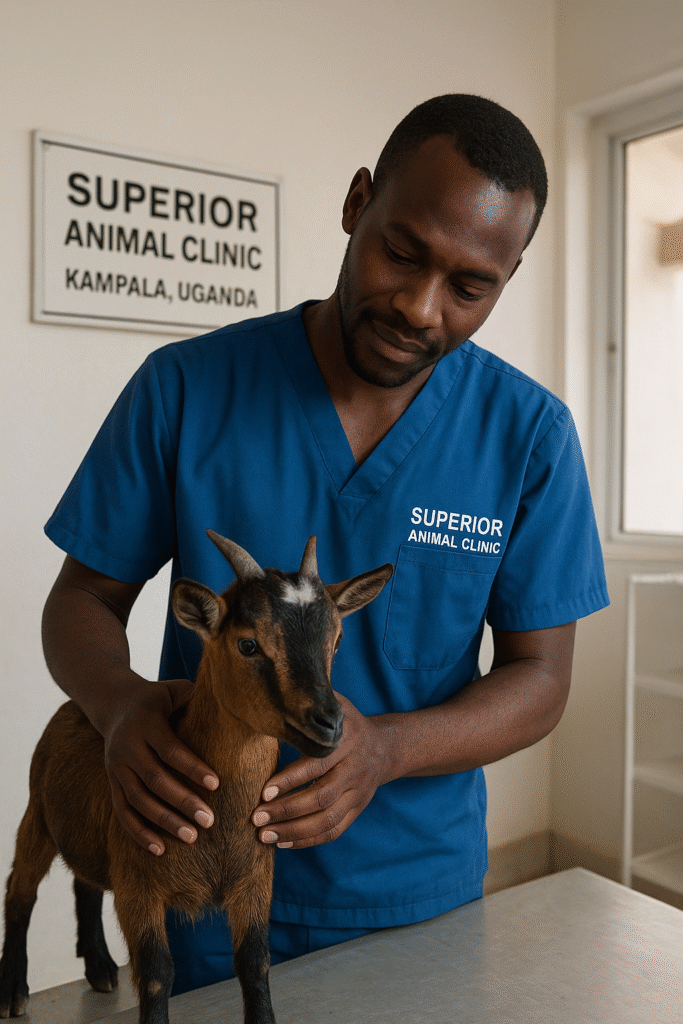
2. Mubende Goat
- Type: Indigenous Ugandan breed (named after Mubende district).
- Characteristics:
- Medium to large size, usually brown with white patches.
- Popular for tasty meat (“Mubende goat meat” is highly demanded).
- Purpose: Meat.
- Pros: Good body size compared to SEA goats, tasty meat fetches better price.
- Cons: Still grows slower than exotic meat breeds.
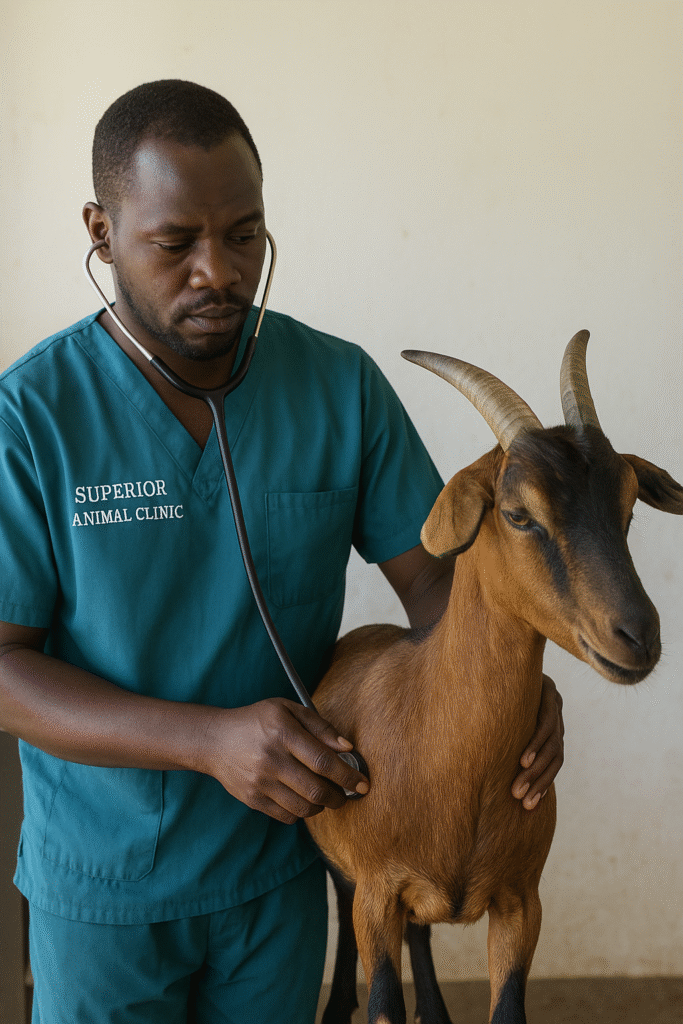
3. Boer Goat
- Type: Exotic meat breed (originally from South Africa).
- Characteristics:
- Large body, white body with reddish-brown head.
- Fast growth rate, very muscular.
- Reaches 45–70 kg easily.
- Purpose: Meat (best meat breed).
- Pros: Very fast growth, high meat yield, good for commercial farming.
- Cons: Needs good feeding and housing; more prone to diseases compared to locals.
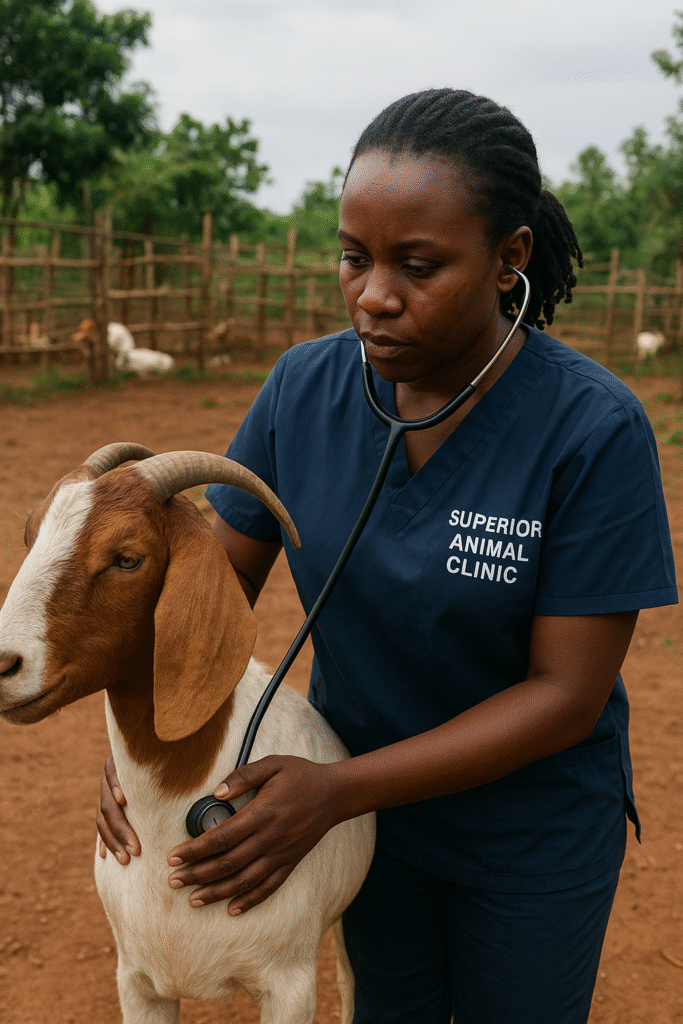
4. Toggenburg Goat
- Type: Exotic dairy breed (from Switzerland).
- Characteristics:
- Medium size, brown coat with white stripes on face and legs.
- Produces 2–3 liters of milk per day.
- Purpose: Milk.
- Pros: High milk production, good for zero-grazing.
- Cons: Sensitive to heat and diseases; requires intensive management.
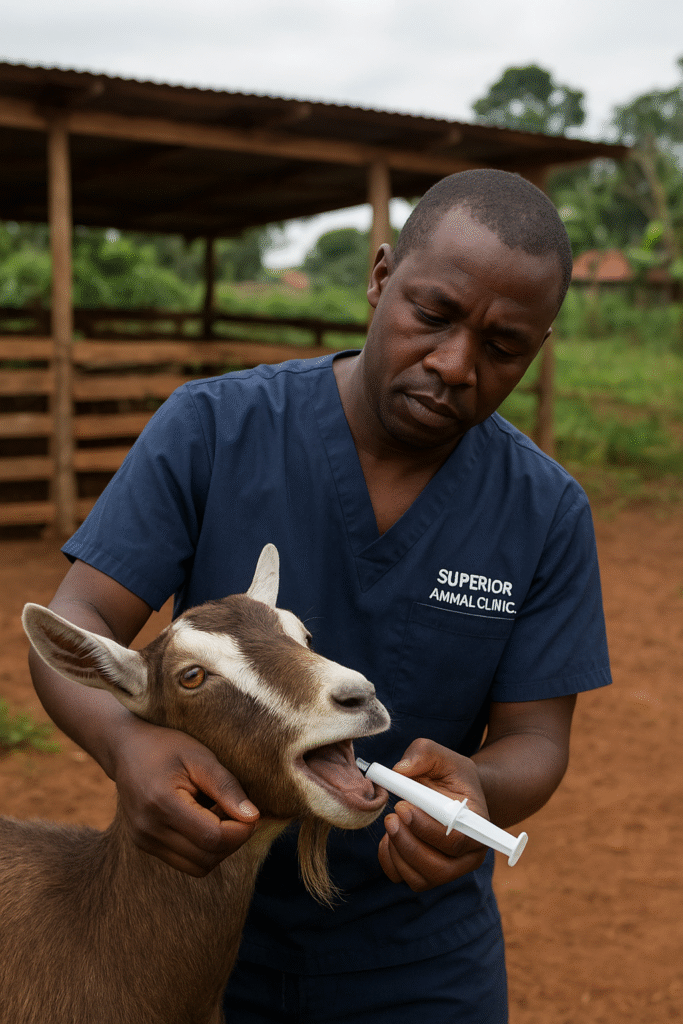
5. Saanen Goat
- Type: Exotic dairy breed (also from Switzerland).
- Characteristics:
- White or cream coat, large body size.
- Can produce 3–4 liters of milk per day.
- Purpose: Milk.
- Pros: Best milk-producing goat breed.
- Cons: Does not do well in very hot/dry areas; requires good feeding and housing.
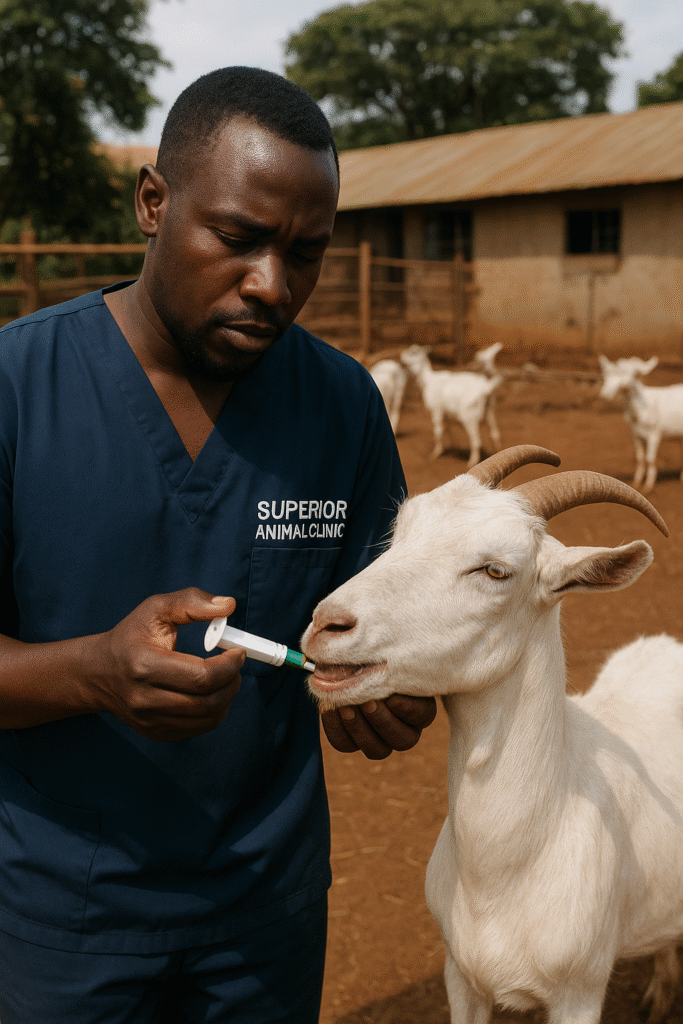
✅ Recommendation: Best Commercial Goat Breed in Uganda
- For Meat Production (most profitable in Uganda):
- Boer Goat is the best choice → very fast growth, high meat yield.
- Many farmers also cross Boer with Mubende → gives strong, fast-growing goats that resist local diseases better.
- For Milk Production (smaller market in Uganda):
- Saanen (best milk yield) or Toggenburg (adaptable and consistent).
👉 Overall Best for Commercial Farming in Uganda:
- Boer × Mubende Cross
- Grows fast like Boer.
- Strong like Mubende.
- Produces high-quality meat that sells well.
Service Areas – We Come to You!
Whether you’re in Muyenga, Naguru, Bukoto, Lubowa, or Seguku, we offer mobile goat vet services right to your farm. We also serve farmers in rural areas like Mityana, where access to quality vet care is limited.
No matter your location, just call Superior Animal Clinic—and we’ll treat your goat like our own.
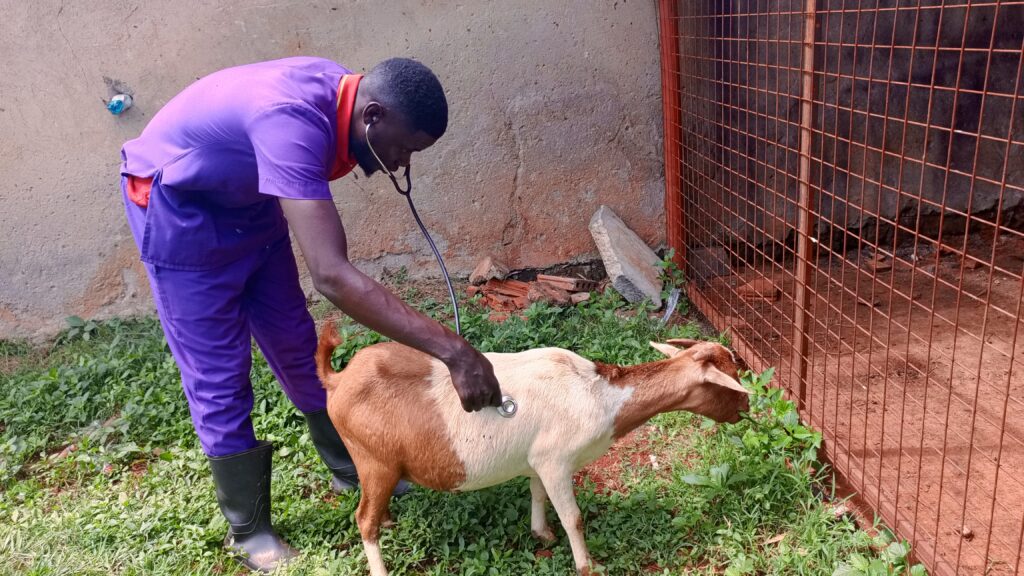
Frequently Asked Questions (FAQs) – Goat Vet Services in Uganda
Q: How much does it cost to treat a goat in Uganda?
A: Prices vary based on the condition. Goat checkup is 30,000shs
Q: Do you treat goats at home or on the farm?
A: Yes! We offer home/farm visits to treat your goats in all areas in and around Kampala.
Q: What if my goat is pregnant and sick?
A: We provide special care for pregnant goats, including safe medications and nutrition advice.
Q: Where can I get a goat vaccination in Kampala, Uganda?
A: Call Superior Animal Clinic for all goat vaccinations in Uganda
Q: How do I know if my goat needs a vet?
A: If your goat stops eating, limps, coughs, has diarrhea, loses weight, or seems weak—bring it to Superior Animal Clinic immediately or call us for a visit.
Q: My goat is weak and not eating—what could be the problem?
A: Weakness and loss of appetite in goats could be due to worms, infections, poor nutrition, or diseases like PPR. Bring your goat to Superior Animal Clinic for a proper diagnosis and treatment.
Q: Do you offer emergency goat treatment services in Kampala, Uganda?
A: Yes, Superior Animal Clinic provides urgent veterinary care for goats. If your goat is in critical condition, contact us immediately for emergency services.
Q: Can you help with goat birthing problems (dystocia)?
A: Absolutely. We handle difficult births, assist with delivery, and offer postnatal care for both the doe and the kids.
Q: How often should goats be dewormed in Uganda?
A: We recommend deworming adult goats every 3–4 months, depending on their condition and environment. We offer full deworming programs tailored for your farm.
Q: Do you offer vaccination schedules for goats?
A: Yes. We provide vaccination schedules to protect your goats from common diseases like PPR, tetanus, and enterotoxemia.
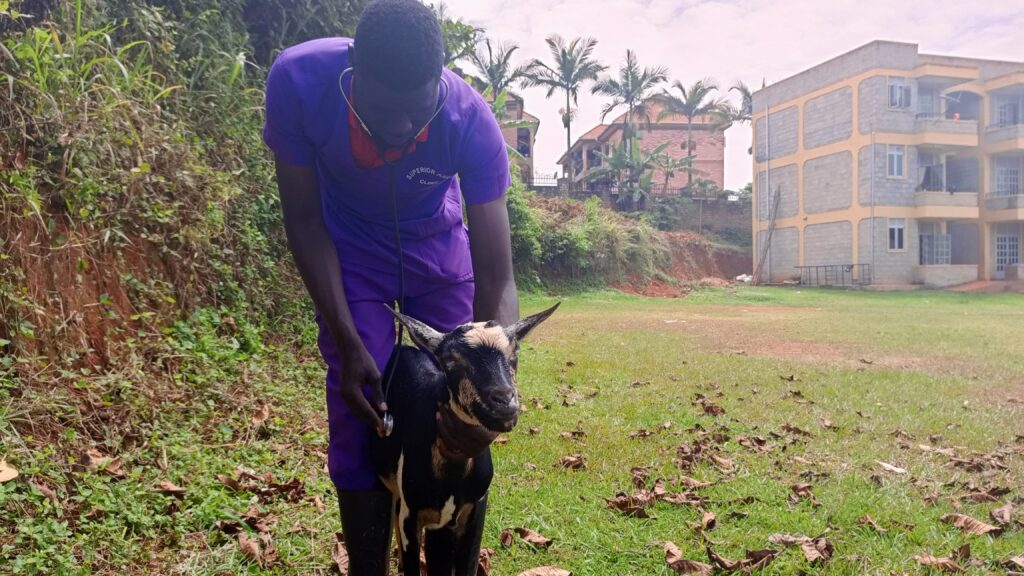
Q: What are the signs of pneumonia in goats?
A: Common signs include coughing, nasal discharge, fever, and fast breathing. Pneumonia can be fatal if not treated early—visit Superior Animal Clinic as soon as you notice these signs.
Q: How do I prevent ticks and lice on my goats?
A: Regular spraying or dipping, along with proper housing and hygiene, helps prevent parasites. We can guide you on safe tick control options for your goats.
Q: Do you treat baby goats (kids)?
A: Yes, we treat newborns and young goats. Whether it’s diarrhea, weak legs, or poor feeding, we provide specialized care for kids.
Q: What should I feed my sick goat to help it recover?
A: This depends on the illness, but we generally recommend soft forage, clean water, and supplements. Our vets will guide you based on the diagnosis.
Q: Can I bring more than one goat to the clinic at once?
A: Yes! Whether it’s one goat or the whole herd, we’re equipped to handle multiple cases at once at Superior Animal Clinic.
Q: where can i get the best goat veterinary services in Kampala, Uganda?
A: Superior Animal Clinic provides the best goat veterinary services in Uganda
Looking for the Best Goat Vet Near You? Choose Superior Animal Clinic
If you’ve searched for any of the following:
- “Goat doctor near me”
- “Where can I treat my goat in Kampala?”
- “Goat vet in Uganda”
- “Sick goat help Makindye”
- “Best goat veterinary clinic in Kampala”
- “Mobile goat vet near Rubaga”
Superior Animal Clinic is your trusted partner in goat health, offering reliable, affordable, and professional care across Kampala and surrounding areas.
Location: Makindye, Salaama Road, Kampala
Call/WhatsApp: +256771909946
Website: superioranimalclinicvet.com
Let your goat feel better, grow stronger, and live longer.
Come to Superior Animal Clinic—your #1 choice for goat veterinary services in Kampala.
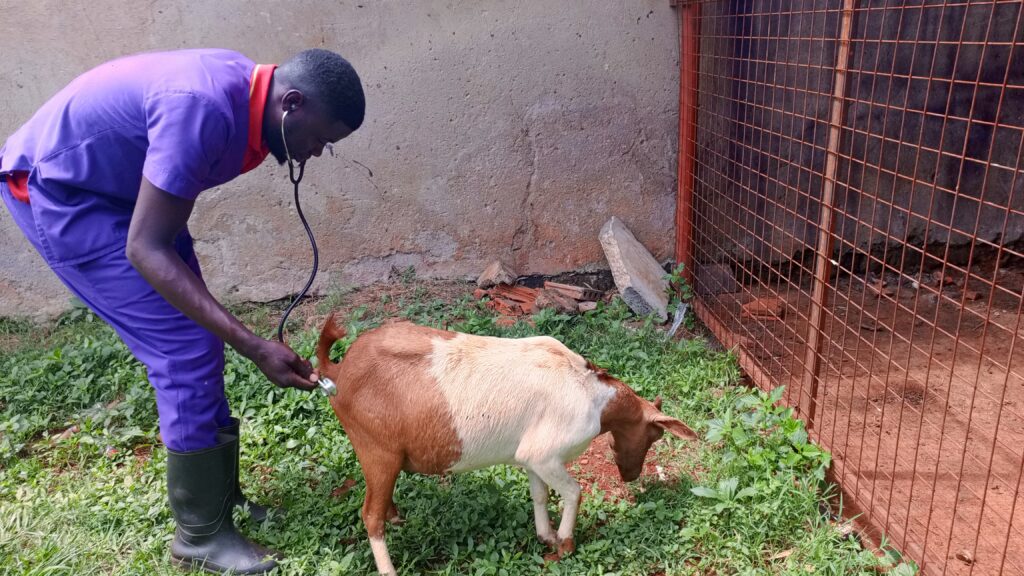

Can you be more specific about the content of your article? After reading it, I still have some doubts. Hope you can help me.
Your article helped me a lot, is there any more related content? Thanks!